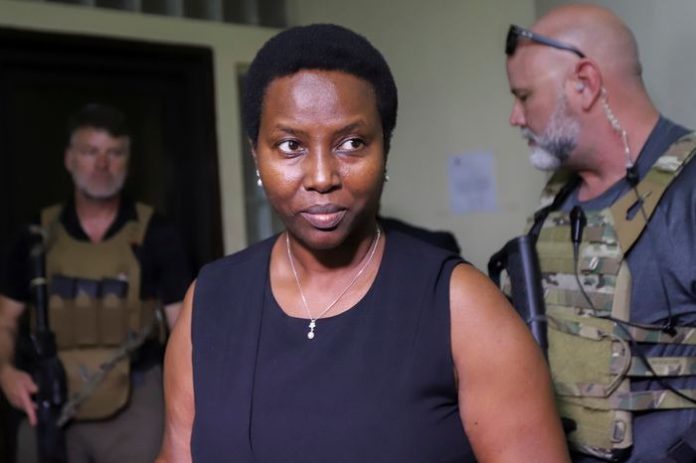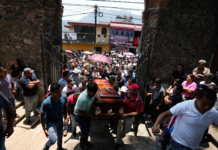
A Haitian judge investigating the assassination of President Jovenel Moïse in 2021 has indicted 51 people in connection with the attack, including his widow, Martine Moïse, and the leader who stepped in after the shooting.
A group of gunmen wielding assault weapons assassinated Moïse and wounded his wife at their home in the hills overlooking Port-au-Prince on July 7, 2021.
A final report into the attack by Judge Walther Voltaire, obtained by The Washington Post on Monday, accuses the former first lady of complicity in the assassination and associating with criminals.
The indictment makes the same accusations against Claude Joseph, who briefly led the country after Moïse’s death. The former chief of Haiti’s National Police, Léon Charles, who led the initial investigations,is also facing charges in relation to the assassination. Charles is currently Haiti’s permanent representative to the Organization of the American States, a regional diplomacy forum.
The indictment sheds little light on the motive for the assassination and how it was financed. It also does not provide any direct evidence of the former first lady’s involvement, relying on interviews with a key witness, former Justice Ministry official Joseph Felix Badio — who, according to the indictment, was working for the plotters who promised to nominate him minister of the interior after the president’s removal. Badio told the judge that Martine Moïse was part of the plot and wanted to become president.
Badio is in custody in Haiti, accused of helping orchestrate the assassination.Martine Moïse’s whereabouts are unknown.Her Florida-based lawyer did not immediately respond to a request for comment Monday.
After U.S. federal investigators launched their own investigation into the killing, 11 men have been accused of conspiring to kill Moïse, while six have pleaded guilty. The others are awaiting trial in Florida.
Haiti currently has no president or elected national officials and is roiled by gang violence. Monday’s report could further inflame tensions following a spate of recent violent protests demanding the resignation of Prime Minister Ariel Henry.
Henry’s critics, including Joseph, the former leader, suspect the indictment was politically motivated — a charge his office denied.
Joseph, now the head of an opposition party, on Monday accused Henry of “weaponizing the Haitian justice system, prosecuting political opponents like me who has been leading peaceful protests across the whole country to force him to step down.”
“It’s a classic coup d’état,” he said.
In a statement, Jean-Junior Joseph, a spokesman for Henry, said the prime minister has “no direct relationship with the examining magistrate, nor does he control him.”
“The judge remains free to issue his order in accordance with the law and his conscience,” he added.
In 2021, a top prosecutor sought charges against Henry, tapped to be prime minister by Moïse days before his death, citing telephone conversations Henry allegedly had hours after the assassination with Badio. Henry denied wrongdoing and fired the prosecutor.
Voltaire is the fifth judge appointed to oversee the Haitian investigation. The former first lady refused to cooperate, repeatedly calling for the judge to step down.
The report cast doubt on Martine Moïse’s public accounts, including a claim that she hid under the couple’s bed to protect herself from the attackers. Investigators suggested that there was not enough space under the bed for a person to hide.
Those charged can appeal the judge’s findings within 10 days of receiving a copy of the indictment.





